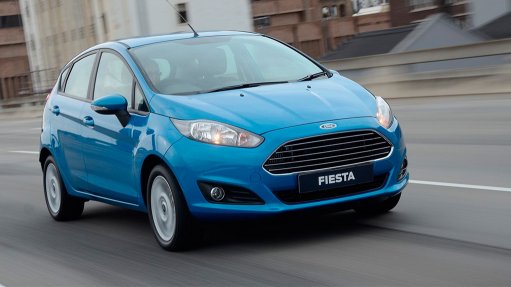
BOOSTING ECONOMICALLY Ford’s EcoBoost engines employ turbochargers to increase power whilst maintaining small capacities
Us automotive manufacturer Ford’s 1.0 ℓ EcoBoost engine has won the 2015 International Engine of the Year Award for the fourth consecutive time. The award was presented by automotive publication Engine Technology International in Stuttgart, Germany, last month.
The win also earns the small-capacity Ford engine the ‘Best Engine Under 1.0 ℓ’ title, and is the only engine ever to be named overall winner three times in a row.
The engine was judged on drivability, performance, economy, refinement and technology by a panel of 87 automotive journalists from 35 countries.
Last year, the 1.0 ℓ EcoBoost became the first engine to be named overall International Engine of the Year three times in a row, and, in 2012, was the winner of the Best New Engine category.
Following this year’s win, Ford is now exploring new cylinder-deactivation technology for further efficiencies.
Ten Ford car models in Europe can be equipped with the 1.0 ℓ EcoBoost engine. Ford reveals that a fifth of new Ford vehicles sold in Europe in 2014 were equipped with the 1.0 ℓ engine, including almost two in five for the Fiesta model.
“The 1.0 ℓ EcoBoost engine changed the game for small petrol engines and we are proud that it remains best in class despite a growing number of competitors,” says Ford of Europe product development VP Joe Bakaj, adding that Ford’s “spirit of innovation” helped the company create this engine.
Further, Ford is working with engineering partners at Schaeffler Group to test a new dual mass flywheel that enables cylinder deactivation to take place at a wider range of engine loads and speeds. The flywheel also helps reduce noise, vibration and harshness levels. On-road tests using a working prototype at the European Research and Innovation Centre, in Aachen, Germany, showed further fuel efficiency improvements of up to 6%.
“Even for an aggressively downsized engine like the 1.0 ℓ EcoBoost, a significant improvement in vehicle fuel economy could be [detected] by exploiting cylinder deactivation,” says Ford of Europe advanced powertrain manager Carsten Weber.
He adds that the highest priority in the development of new combustion engines for automotive applications is the ongoing reduction in fuel consumption
The 1.0 ℓ EcoBoost, with horsepower that ranges from 100 PS to 125 PS and 140 PS, is produced at Ford’s European facilities in Cologne, Germany, and in Craiova, Romania, and is now available in 72 countries worldwide.
In previous years, the engine was awarded the International Paul Pietsch Award 2013 for technological innovation, in Germany; the Royal Academy of Engineering Colin Campbell Mitchell Award, the Dewar Trophy from the Royal Automobile Club, in the UK; and the Breakthrough Award from Popular Mechanics magazine in the US.